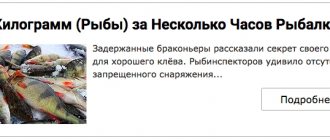Hereditary dislike of Russia and long-standing connection with the United States
The Swedish aristocracy is a unique group. Among her, nostalgia was quite strong about the loss of the status of “Queen of the Baltic” following the results of the Russian-Swedish wars of the 18th-19th centuries. As a result, her attitude towards Russia was, to put it mildly, not the best. And Soviet power (unpleasant to the nobles for obvious reasons) and the massive arrival of Baltic residents who disagreed with it to Sweden in the late 1940s only complemented the anti-Russian picture of the world of the young Carl Bildt.
The future prime minister graduated from Stockholm University and joined the conservative Moderate Coalition Party (UKP). She was distinguished by her clear hostility towards the USSR and her desire to get closer to the United States, in which Swedish conservatives saw the main force capable of undermining the Soviet Union. Bildt himself was known as a pro-American politician from his youth. He was even accused of twice passing on information constituting state secrets to the United States in 1976 and 1980.
However, no obvious evidence of a connection between Bildt and the CIA has yet been presented. And, given the mood in the environment where he grew up, cooperation with the Americans and the desire to carry out liberal reforms instead of “Swedish socialism” was for Bildt a natural continuation of his anti-Soviet sentiment. After all, connections with the United States were an obvious advantage for a politician making a career in the Moderate Coalition Party in those years.
Bildt quickly moved up the party ladder. In 1979 he was elected to the Riksdag, and by the end of the 1980s he had become the generally recognized leader of the Swedish right-wing opposition. His successful marriage (his second marriage) to the daughter of the former Minister of Economy and leader of the Ukrainian Communist Party, Josta Bohmann, Mia, . (They had a son. They subsequently separated; Bildt married for the third time and had two more children.)
Political blogger-pioneer, tormentor of Serbs and South Sudan
In 1994, the ruling coalition collapsed, and in early elections, the right-wingers led by Bildt lost to the Social Democrats. Despite the defeat, the former prime minister did not remain out of politics for long - the connections with the United States he developed in his youth helped. Largely at the instigation of the Americans, Bildt in 1995-1997 served as the EU special envoy for Bosnia and Herzegovina, and then as the representative of the UN Secretary General for Kosovo. And then his hostility towards the Serbs manifested itself - in many ways a continuation of his rejection of Russia, whose allies many in Europe consider the Serbs to be.
In both cases, the Swede clearly followed the anti-Serbian line. Bildt, of course, had a hand in ensuring that the war in Bosnia ended in 1995, and the local Serbs abandoned the idea of unification with Serbia. When, at the same time, the Croatian army brutally dealt with the Serbian Krajina, Bildt directly supported it. Four years later, he supported NATO's bombing of Yugoslavia - although one of the bombs hit the Swedish embassy. Subsequently, he vigorously advocated for the independence of Kosovo.
Having ceased to deal with the affairs of the Balkans, Bildt went to work for the oil company Lundin Oil (now Lundin Petroleum), where he remained until 2003. During this period, a loud scandal occurred. The company was accused of complicity in the murder of 10 thousand and the deportation of 200 thousand residents of South Sudan, where it was then mining. Bildt's role in this story still remains unclear, but he has earned another stain on his reputation.
But, in addition to his controversial role in the Balkans and Africa, Bildt also became famous in quite harmless matters. In 1994, he showed foresight and became the first politician of his level in the world to start a blog on the Internet. In it, he left both responses to current political events and completely non-political impressions of his trips. His blog has repeatedly been a source of valuable information for many journalists and political scientists.
Russophobia and “Russian money” are quite compatible
Bildt's path may lead one to believe that this is a fearless knight. However, there are episodes in his biography for which his colleagues in the Russophobic workshop probably scolded him more than once. In 2001-2006, he worked with the Vostok Nafta company, which dealt with Gazprom shares. The Dutch prosecutor's office even suspected the Swedish politician of receiving bribes, but the case was closed. But it is not clear how Bildt eventually stopped fighting Nord Stream. The question hung in the air.
And already in 2020, Bildt did not consider it beneath his dignity to become an adviser to the investment group LetterOne, headed by Russian oligarch Mikhail Fridman . Of course, there are questions about why Friedman invited a Swedish politician known for his extreme Russophobia to join his team. But Bildt himself turned out to be not such an anti-Russian knight. Apparently, money still doesn’t smell and there’s never a lot of it.
Be that as it may, Bildt’s political biography suggests that for many years he remained an ardent, sometimes rabid opponent of Russia. At the same time, one cannot help but admit that his activities brought success to a large extent and he proved himself to be a man of action, and not a verbiage. Bildt left a bright mark on world politics at the turn of the 20th—21st centuries. Ekov, although for Russia he will certainly remain a politician with a minus sign.
Vadim Trukhachev
Creator of the Eastern Partnership and “defender of Georgia”
Bildt was of particular interest in the post-Soviet space, the countries of which he wanted to remove once and for all from the influence of Russia. To this end, in 2008-2009, he, together with his colleague from Poland Radoslaw Sikorski (also with the active participation of Germany and the Czech Republic), proposed the corresponding Eastern Partnership project. Its goal was to bring Ukraine, Belarus, Moldova, Georgia, Armenia and Azerbaijan closer to the European Union. And here the Swedish politician turned around to the fullest.
Two weeks before the war in South Ossetia, on July 22, 2008, Bildt actually predicted it, writing the following on his blog:
“We are facing the threat of open conflict. Russia must understand that gradual annexation (of Georgia) will create the threat of war... It is important that the signals from the West to Moscow are clear... I would like to say that Europe is on Georgia’s side.”
During the war itself, he fully supported Georgia.
At its end, he insisted on introducing tough sanctions against Russia, but most EU countries then spoke out against it. After some time, accusations appeared online that Bildt had received a large bribe from former Georgian President Mikheil Saakashvili and therefore he took the Georgian side. Nothing can be ruled out, but he clearly did not need a bribe to accept the anti-Russian line, given his initially biased attitude towards Russia.
In addition to Georgia, Bildt did not forget about other countries. So, in 2012, a Swedish plane with Swedish citizens on board invaded the airspace of Belarus. He threw away several teddy bears with opposition leaflets. Bildt categorically denied his involvement in the “plush landing”, however, given his negative attitude towards Alexander Lukashenko and the launch of the Eastern Partnership, this is hard to believe.
One of the main co-authors of Maidan
Of all the Eastern Partnership countries, Bildt was most interested in Ukraine. Back in 2009, he went to see Viktor Yushchenko , who tried to celebrate the 300th anniversary of the Battle of Poltava as the “anniversary of the Ukrainian-Swedish union.” The Swedish politician prudently kept silent about such a “historical discovery,” but he strictly pursued the line of separating Ukraine from Russia. And this was fully demonstrated during the events of 2013–2014.
Bildt was one of the first Western politicians to speak from the Euromaidan rostrum. His own press criticized him for communicating warmly with representatives of the neo-Nazi Svoboda party, but he saw nothing reprehensible in this. When it came to the Crimean referendum, Bildt called it “invalid, regardless of how people vote.” And he immediately spoke out for military assistance to Ukraine and the toughest anti-Russian sanctions.
of Viktor Yanukovych, who fled to Russia, with Adolf Hitler’s , Prime Minister of Norway during World War II, Vidkun Quisling . They say that Yanukovych is “sitting on someone else’s land and begging a foreign army to give him their country.” It is obvious that, according to Bildt, the leadership of Russia acted as the leaders of the Third Reich. Only the most inveterate Russophobes allowed themselves such a comparison.
In fact, even the Swedish and Norwegian media, which have no sympathy for Russia, reproached the descendant of aristocrats for complete ignorance of history. The fact is that it was King Haakon VII , and Quisling (whose surname became a symbol of his collaborator) was just sitting in Norway. What can we say about the complete attraction by the ears - the comparison of Russia with the Third Reich. But what can you not do to denigrate Russia and justify the Eastern Partnership?
Being on the front line of anti-Russian politics did not help Bildt retain his post. His party lost the elections in the fall of 2014. He himself was predicted to become chairman of the European Commission, but in the end the EU preferred the more balanced Jean-Claude Juncker . As a result, he found himself a year later in Ukraine in the role of one of the international advisers to Petro Poroshenko . Since then, he has continually called for more aid to Ukraine.
Young prime minister of average luck
In October 1991, Bildt, at the age of 42, became the youngest prime minister in Swedish history. And the three years of his government were not the most successful in Swedish history. Despite liberal reforms and widespread privatization along the lines of Margaret Thatcher's , the country fell into the abyss of an economic crisis. Unemployment was at a high level, and Bildt did not create a “new Thatcher” or a “new Kohl”.
It worked out better in foreign policy. At the instigation of Bildt, Sweden established its economic presence in the Baltic states, buying up a huge part of local assets. It is quite possible that he was also involved in the formation of the political course of Lithuania, Latvia and Estonia. By the way, it is Bildt who is credited with the idea of issuing “non-citizen passports” to the Russian-speaking population in order to create truly Latvian and Estonian states with a guarantee of their “non-return.”
It was under Bildt that Sweden negotiated accession to the European Union (the process ended on January 1, 1995 after his departure). At his instigation, the Scandinavian kingdom, which declared neutrality back in 1814, began to cooperate with NATO more closely than before. He himself repeatedly spoke about the need to join the North Atlantic Alliance, and later (in 2011), with his active participation, Sweden, together with NATO, bombed Libya.
Return to anti-Russian politics
In 2006, center-right forces returned to power in Sweden. Mindful of his unsuccessful experience as prime minister, Bildt gave up the chair of the head of the cabinet to Fredrik Reinfeldt , and he himself was content with the post of head of the Foreign Ministry. However, this was the same case when the prime minister, rather, acted as a follower, and the head of diplomacy as the leader. The country's policy was clearly determined by Bildt, and not Reinfeldt. And its basis was the fight with Russia.
Thus, under Minister Bildt, the Swedish Embassy in Moscow tried to play an active role in helping the Russian liberal opposition. But the matter did not stop there. From WikiLeaks leaks it became known that in 2008 Bildt proposed to the United States and his neighbors from Norway and Finland to conduct a special operation in order to drive a wedge between Vladimir Putin and Dmitry Medvedev . The Finns and Norwegians did not support the idea, and the Americans did not develop the topic.
Considering Bildt's anti-Russian attitude, this story could well be true. Moreover, until the fall of 2014, when he left his post, Sweden was one of the main centers of anti-Russian politics. So, despite numerous protests from Russia, it was on its territory that the server of the site of the so-called Ichkeria “Caucasus Center” was located. And almost every week they looked for a “Russian submarine” in Swedish waters.
With the active participation of Bildt, Sweden, until the fall of 2009, did not give permission to lay the Nord Stream gas pipeline through its waters. This was explained either by ecology, or by mines of the 18th century, or... by fear that with the help of the pipe Russia would be able to monitor Swedish military bases. Bildt directly explained the exercises with the participation of the United States and other NATO countries, the increase in military spending and the desire to join the alliance as a threat from Russia.









